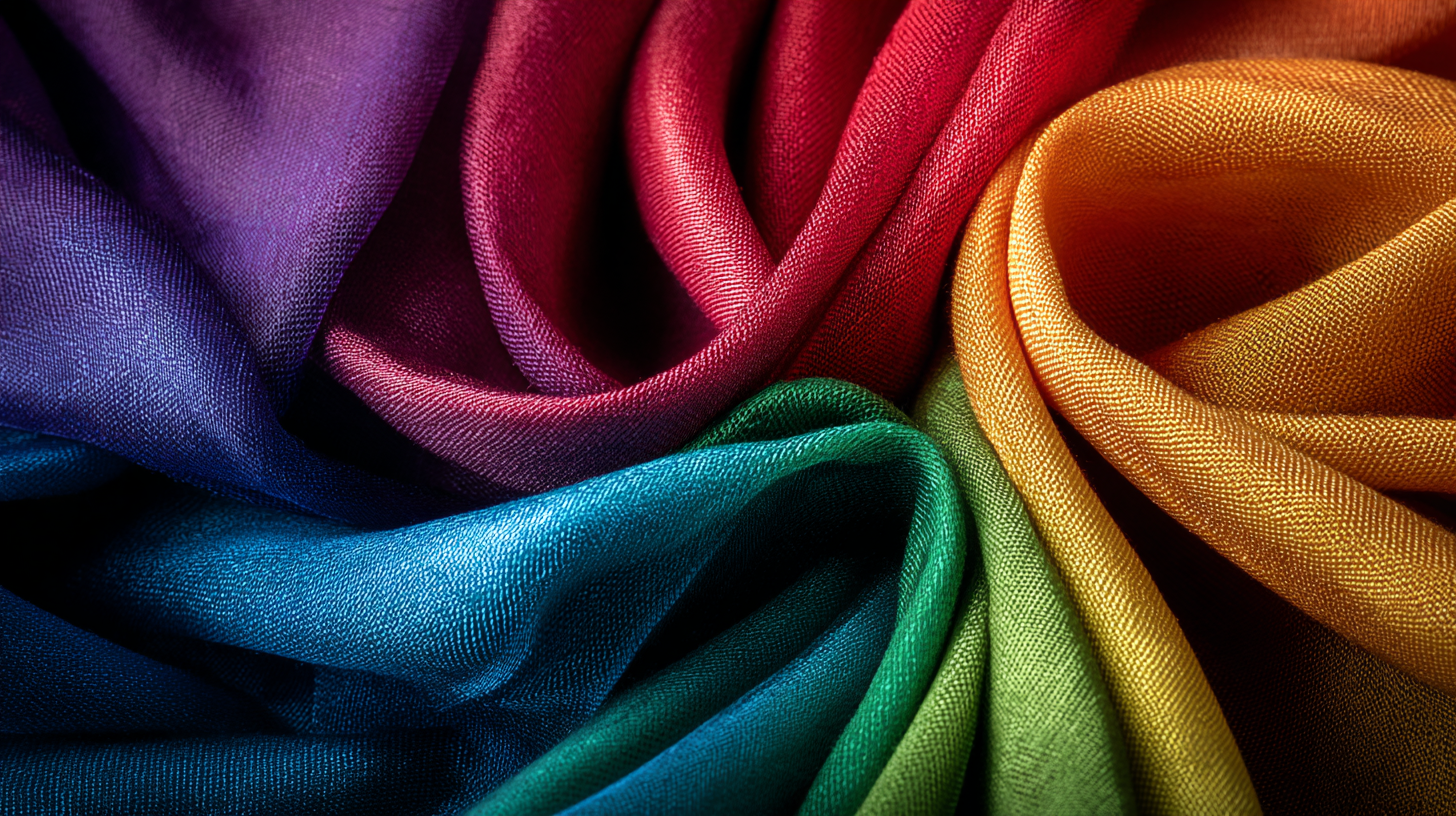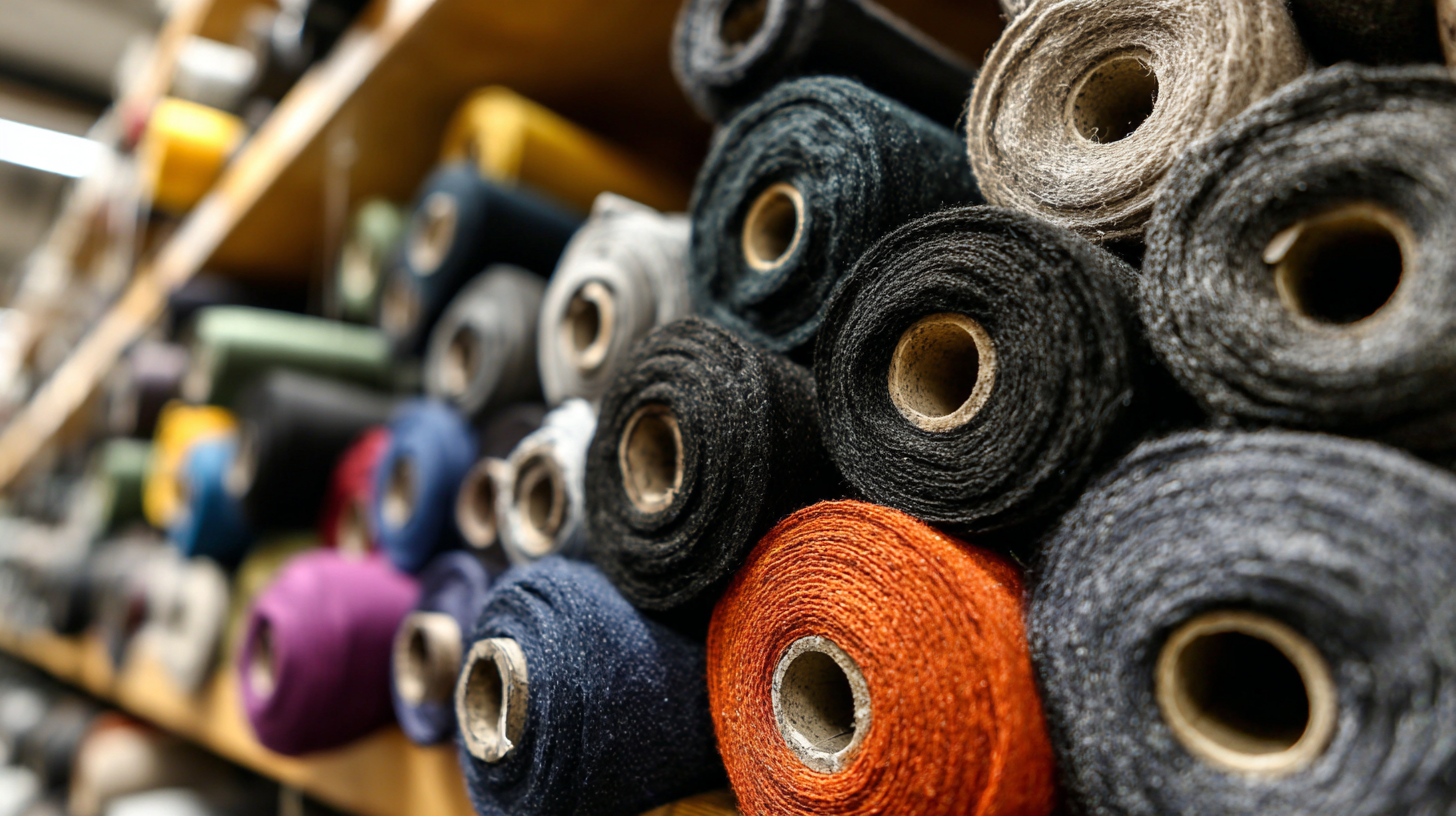- +86 13957580925
- 510515850@qq.com
- adela0928@163.com
In today's competitive market, the choice of materials plays a crucial role in the success of any business, particularly in the textile and manufacturing sectors. Polyester Terylene has emerged as a preferred choice for companies worldwide due to its durability, affordability, and versatility. According to a report from Grand View Research, the global polyester textile market is projected to reach USD 121.2 billion by 2025, driven by the rising demand for high-performance fabrics and cost-effective production solutions. Furthermore, the robust nature of Polyester Terylene not only enhances product longevity but also reduces waste, aligning with sustainability goals that are increasingly important to consumers and manufacturers alike. With the backing of powerful factories in China adept at producing high-quality materials for global export, now is the perfect time for businesses to discover the advantages of selecting the best Polyester Terylene for their operations.

 Polyester Terylene has emerged as a highly favorable fabric choice for businesses across various sectors, thanks to its remarkable properties. According to a report by the Textile World Association, nearly 80% of fabric used in textile production is now polyester-based, reflecting its dominance in the market. This synthetic fiber offers exceptional durability and resistance to wrinkling, making it ideal for work uniforms, promotional wear, and other applications where reliability is essential. Additionally, its moisture-wicking properties ensure comfort, crucial in industries requiring long hours of wear.
Polyester Terylene has emerged as a highly favorable fabric choice for businesses across various sectors, thanks to its remarkable properties. According to a report by the Textile World Association, nearly 80% of fabric used in textile production is now polyester-based, reflecting its dominance in the market. This synthetic fiber offers exceptional durability and resistance to wrinkling, making it ideal for work uniforms, promotional wear, and other applications where reliability is essential. Additionally, its moisture-wicking properties ensure comfort, crucial in industries requiring long hours of wear.
When selecting the best Polyester Terylene for your business, consider the following tips: First, prioritize the weight and texture of the fabric; lighter weights are perfect for warmer climates, while heavier options provide more insulation. Next, explore options with UV protection properties, especially if your products will be exposed to sunlight, as this can prolong the lifespan of garments. Lastly, evaluate the sustainability aspect; many manufacturers now produce recycled Polyester Terylene, aligning with eco-friendly business practices without compromising on quality.
Investing in quality Polyester Terylene not only enhances your brand image but also ensures that your employees are well-equipped to represent your business professionally. Reports indicate that companies using high-grade fabrics report increased employee satisfaction and lower turnover rates, underscoring the importance of making an informed choice in fabric selection.
When it comes to textile production, choosing the right material is crucial for ensuring quality and durability. High-quality polyester terylene stands out as a top choice for businesses looking to enhance their products. One of the key benefits of using polyester terylene is its exceptional strength and resilience. This synthetic fabric can withstand wear and tear far better than natural fibers, making it ideal for items that require longevity, such as upholstery and workwear.
Moreover, polyester terylene offers excellent color retention and resistance to fading, which means that products maintain their vibrant appearance even after numerous washes. This characteristic adds value to your brand, as customers often seek long-lasting, visually appealing garments and textiles. Additionally, this fabric is quick-drying and wrinkle-resistant, providing convenience for both manufacturers and consumers. By incorporating high-quality polyester terylene into your production line, you not only boost the longevity of your products but also enhance the overall customer experience.
Polyester terylene stands out as a superior choice for businesses looking to enhance their product offerings. Compared to other fabrics, such as cotton and traditional wool, polyester terylene exhibits significant advantages in durability, moisture resistance, and overall performance. According to recent industry reports, polyester terylene textiles can effectively block infrared (IR) radiation, which not only helps in keeping products cooler but also offers energy efficiency for applications like construction. The ability of these textiles to lower temperatures in model houses illustrates their practical benefits.
Moreover, when compared to blended fabrics, such as polyester and wool hybrids, terylene provides enhanced pilling resistance. Research indicates that polyester blends with various micron wool fibers demonstrate varying levels of durability, but their resistance to pilling often falls short of pure terylene textiles. With properties such as superior strength and ease of care, polyester terylene fabrics can maintain their aesthetic appeal and performance over time, making them a leading option in the fabric industry. As businesses seek to innovate and optimize their material choices, polyester terylene emerges as a fabric that delivers both functionality and value.
| Fabric Type | Durability | Moisture Retention | Cost | Ease of Care | Environmental Impact |
|---|---|---|---|---|---|
| Polyester Terylene | High | Low | Moderate | Easy | Recyclable |
| Cotton | Moderate | High | High | Moderate | High |
| Nylon | High | Moderate | High | Easy | Moderate |
| Wool | Moderate | Low | Very High | Complex | Moderate |
As businesses increasingly prioritize sustainability, choosing the best polyester terylene offers a significant eco-friendly advantage. This material not only promotes environmental protection but also enhances overall operational performance. By incorporating polyester terylene into their product lines, companies can leverage a resource that is both durable and recyclable, aligning with the growing demand for sustainable business practices. This shift not only helps in meeting environmental obligations but also positions companies favorably in a market that favors green innovation.

Moreover, the relationship between green innovation and competitive advantage has been supported by recent studies, illustrating how adopting sustainable materials like polyester terylene can lead to enhanced brand reputation and financial performance. Embracing these eco-friendly alternatives not only contributes to energy efficiency and waste reduction but also responds to the rising expectations of consumers for responsible business practices. This alignment can ultimately drive business growth and profitability, underscoring the critical role of sustainable materials in modern manufacturing processes.
When it comes to making cost-effective choices for business materials, polyester terylene stands out as a smart investment. According to a report from the European Textile and Apparel Industry, polyester accounts for over 60% of global fiber production, driven by its affordability and versatility. This fiber not only reduces manufacturing costs significantly but also offers durability and minimal maintenance, ensuring long-term savings for businesses. The high demand for polyester terylene can be attributed to its cost-efficient production processes, with manufacturers reporting a decrease of 30% in operational costs compared to natural fibers.
In addition to lower material costs, businesses that opt for polyester terylene benefit from its excellent performance characteristics. A recent study published by the Textile Research Journal highlighted that polyester terylene fabrics maintain their shape and color over time, reducing the frequency of replacements and thus lowering overall expenditure. Furthermore, the fabric’s moisture-wicking properties make it a preferred choice in activewear, catering to growing market trends without breaking the budget. By selecting polyester terylene, companies can maximize their budgets while ensuring high-quality products that meet consumer expectations.
